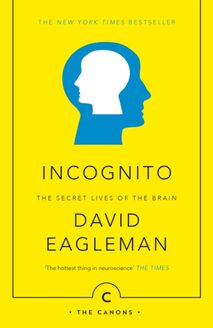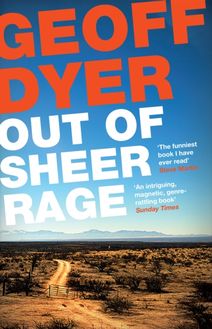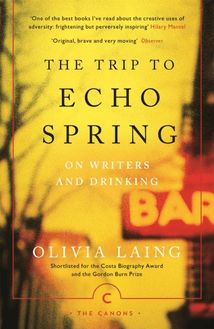-
 Univers
Univers
-
 Ebooks
Ebooks
-
 Livres audio
Livres audio
-
 Presse
Presse
-
 Podcasts
Podcasts
-
 BD
BD
-
 Documents
Documents
-
- Cours
- Révisions
- Ressources pédagogiques
- Sciences de l’éducation
- Manuels scolaires
- Langues
- Travaux de classe
- Annales de BEP
- Etudes supérieures
- Maternelle et primaire
- Fiches de lecture
- Orientation scolaire
- Méthodologie
- Corrigés de devoir
- Annales d’examens et concours
- Annales du bac
- Annales du brevet
- Rapports de stage
La lecture à portée de main
Vous pourrez modifier la taille du texte de cet ouvrage
Découvre YouScribe en t'inscrivant gratuitement
Je m'inscrisDécouvre YouScribe en t'inscrivant gratuitement
Je m'inscrisEn savoir plus
Vous pourrez modifier la taille du texte de cet ouvrage
En savoir plus

Description
Sujets
Informations
| Publié par | Canongate Books |
| Date de parution | 02 mars 2017 |
| Nombre de lectures | 0 |
| EAN13 | 9781786890283 |
| Langue | English |
Informations légales : prix de location à la page 0,0440€. Cette information est donnée uniquement à titre indicatif conformément à la législation en vigueur.
Extrait
CLOSE TO THE KNIVES
David Wojnarowicz wrote six books. His artwork is in numerous private and public collections, including the Museum of Modern Art and Whitney Museum of American Art, New York; Los Angeles County Museum of Art; and the National Gallery of Canada, Ottawa, among other institutions. In addition to his artwork, Wojnarowicz attained national prominence as a writer and advocate for AIDS awareness, and for his stance against censorship. He died from AIDS in 1992.
Also by David Wojnarowicz
Sounds in the Distance
Tongues of Flame
Memories that Smell like Gasoline
Seven Miles a Second (with James Romberger and Marguerite Van Cook)
The Waterfront Journals
In the Shadow of the American Dream: The Diaries of David Wojnarowicz (edited by Amy Scholder)
CLOSE TO
A Memoir of Disintegration
THE KNIVES
David Wojnarowicz
Introduction by Olivia Laing
Published in Great Britain in 2017 by Canongate Books Ltd, 14 High Street, Edinburgh EH1 1TE
www.canongate.co.uk
This digital edition first published in 2017 by Canongate Books
Copyright © 1991 by David Wojarowicz Introduction © 2016 by Olivia Laing
Olivia Laing’s introduction first appeared in the Guardian in 2016.
First published in the United States in 1991 by Vintage Books, a division of Penguin Random House Inc.
The moral right of the author has been asserted
British Library Cataloguing-in-Publication Data A catalogue record for this book is available on request from the British Library
eISBN 978 1 78689 028 3
Typeset in Bembo by Biblichor Ltd, Edinburgh
This Book Is For: Peter Hujar Tom Rauffenbart Marion Scemama
“longer than China, bigger than Berlin I go to a far away place within taking a journey with 67 eyes flying through fire all over the skies” Keiko Bonk
“. . . every stinking bum should wear a crown.” Iggy Pop
PERSONAL ACKNOWLEDGMENTS
Thanks to . . .
THE LIVING : Tom Rauffenbart, Patrick McDonnel, Nan Goldin, Siobhan, John Zinsser, David Coles and Peter Weiss of Center for Constitutional Rights, Paul Marcus, Susan Pyzow, Dr. Bob Friedman, Marion Scemama, Carlo McCormack, John Olsoff, Kathryn Barrett, Jonathan Gutoff, Anita Vitale, ACT-UP, Phil Zwickler, John Carlin, Elizabeth Hess, C. Carr, Lucy Lippard, David Hirsh, Bill Rice, Larry Mitchell, Karen Finley, Willy from the West Street days, Norman Frisch, Dennis Cooper, Old Reliable, Richard Kern, Amy Scholder, Ira Silverberg, Lydia Lunch, Ben Neill, Angela Davis, Judy Glantzman, Carmela Perri, Tommy and Amy Turner, Bill Burroughs, Philip Zimmerman, Jean Foos, Doug Bressler, Brian Butterick, Mary Hayslip, Phillip Yenawine, Cee Brown, Fran Lebowitz, Lynn Davis, Barry Blinderman, Christina Nordholm, Laurie Dahlberg, Peter Spooner, Kiki Smith, Syd Stoldt, Sophie Breer, Kathy Acker, Tanya, DeFazio, Ishmael and his dark sexy work, 42nd Street Movie Houses, Ann Northrop, the drag queens along the Hudson River and their truly revolutionary states, and all the guys and girls future and past who give chaos reason and delight.
THE DEAD : Peter Hujar, Keith Davis, Iolo, Montanna, Dean Savard, Arthur Bressan, Jr., Paul Proveaux, Cookie Mueller, Paul Thek, Luis Frangella, Ethyl Eichelberger, and Vito Russo for their beautiful brush fires in the social landscape.
––––
And special thanks to my editor, Karen Rinaldi, and her muse, Lenny Dykstra.
CONTENTS
Introduction
Self-Portrait in Twenty-Three Rounds
Losing the Form in Darkness
In the Shadow of the American Dream
Soon All This Will Be Picturesque Ruins
Being Queer in America
A Journal of Disintegration
Living Close to the Knives
Postcards from America
X Rays from Hell
The Seven Deadly Sins Fact Sheet
Additional Statistics and Facts
Do Not Doubt the Dangerousness of the 12-inch-tall Politician
The Suicide of a Guy who Once Built an Elaborate Shrine over a Mouse Hole
Postscript
INTRODUCTION
YOU MIGHT NOT BE familiar with the American artist and activist David Wojnarowicz’s name, but if you’re of a certain age, you have probably seen at least one image by him. His photograph of buffalo tumbling off a cliff was used as the cover of U2’s One , taking his art to a global audience a few months before his death in 1992 of AIDS-related complications.
Wojnarowicz was only thirty-seven when he died, but he left behind an extraordinary body of work, particularly considering the uncongenial circumstances of much of his short life. A refugee from a violent family, a former street kid and teen hustler, he grew up to become one of the stars of the febrile 1980s East Village art scene, alongside Kiki Smith, Nan Goldin, Keith Haring and Jean-Michel Basquiat.
His paintings were what made him famous – livid, densely symbolic visions, a kind of 20th-century American Dreamtime. But paint was by no means his only medium. His first serious work of art, made in the early 1970s, was a compelling series of black and white photographs of a man wearing a paper mask of the poet Arthur Rimbaud. This enigmatic, expressionless figure drifts through the piers and diners of New York, a dispossessed flâneur .
In the years that followed, Wojnarowicz worked with film, installation, sculpture, performance and writing, making things that testified to his perspective as an outsider, a gay man in a homophobic and violent world. One of the greatest and most abiding of all these works is Close to the Knives , an autobiography-cum-essay collection first published in America in 1991. A memoir of disintegration, he called it, alluding both to its chopped-up, collaged structure and to the landscape it maps: a place of loss and danger, of transient beauty and dogged resistance.
Wojnarowicz was driven to document the undocumented, to record and bear witness to scenes that most people never encounter. As a small boy, he and his siblings were kidnapped by their alcoholic father. In the suburbs of New Jersey they were beaten repeatedly, while neighbours pruned their flowers and mowed their lawns. Later, during the plague years, he watched his best friends die horribly, while religious leaders pontificated against safe-sex education and politicians mooted quarantine on islands.
It filled him with rage, the brutality and the waste. He writes: “I want to throw up because we’re supposed to quietly and politely make house in this killing machine called America and pay taxes to support our own slow murder, and I’m amazed that we’re not running amok in the streets and that we can still be capable of gestures of loving after lifetimes of all this.”
Knives opens with a visceral essay about his homeless years: a boy in glasses selling his skinny body to the paedophiles and creeps who hung around Times Square. He recalls days on broiling Manhattan blocks when he was so exhausted and malnourished he began to hallucinate that rats were carrying children’s arms and legs in their mouths. As a young man, Wojnarowicz had been inspired by the Beats, and that rangy, jagged tone is everywhere in his work, conjuring the strident world of the streets with an unflinching energy that recalls John Rechy’s City of Night or Jean Genet’s The Thief’s Journal .
Being homeless was a nightmare that he took years to emerge from, but the streets were also a place of wildness and freedom, a source of attraction throughout Wojnarowicz’s life. Much of the most beautiful writing here concerns cruising on the derelict Chelsea piers, looking for sex in the vast decaying rooms that extended out over the filthy Hudson river. “So simple,” he writes, “the appearance of night in a room full of strangers, the maze of hallways wandered as in films, the fracturing of bodies from darkness into light, sounds of plane engines easing into the distance.”
What does it mean if what you desire is illegal? Fear, frustration, fury, yes, but also a kind of political awakening, a fertile paranoia. “My queerness,” he once wrote, “was a wedge that was slowly separating me from a sick society.”
In an essay entitled “In the Shadow of the American Dream”, he describes what it is like to live like this, with the knowledge that “some of us are born with the cross-hairs of a rifle scope printed on our backs or skulls”. Out on the road, driving across the deserts of Arizona, he picks up a stranger in the restroom at Meteor Crater. They drive down a service road to embrace: two humans licking each other’s bodies, each with one eye fixed to the windscreen, the rear-view mirror, watching for the bright spark of a state trooper car in the distance; each knowing that their act of desire could lead to a beating or prison, even to death.
And then death did come, in the most brutal way imaginable. The blind terror of life in the plague years: “the people waking up with the diseases of small birds or mammals; the people whose faces are entirely black with cancer eating health salads in the lonely seats of restaurants”. One by one, friends die; “piece by piece, the landscape is eroding and in its place I am building a monument made of feelings of love and hate, sadness and feelings of murder”.
The heart of Knives is the title essay, which deals with the sickness and death of the photographer Peter Hujar, Wojnarowicz’s one-time lover, his best friend and mentor, “my brother, my father, my emotional link to the world”. Nothing I have ever read matches the fury and grief of this writing, the sheer horror of watching a loved one flailing against a premature death sentence. There was no reliable treatment for AIDS back then. Wojnarowicz describes a nightmarish drive with the emaciated, furious Hujar to Long Island to visit a doctor who claims to have had good results with typhoid shots. He isn’t really a doctor, it turns out, though his waiting room is filled with dozens of desperate AIDS patients.
Hujar died on 26 November 1987. Unflinching as ever, Wojnarowicz recorded his passing, standing by his body to take twenty-three photographs of “his amazing feet, his head, that open eye again”, before raising his hands in h
-
 Univers
Univers
-
 Ebooks
Ebooks
-
 Livres audio
Livres audio
-
 Presse
Presse
-
 Podcasts
Podcasts
-
 BD
BD
-
 Documents
Documents
-
Jeunesse
-
Littérature
-
Ressources professionnelles
-
Santé et bien-être
-
Savoirs
-
Education
-
Loisirs et hobbies
-
Art, musique et cinéma
-
Actualité et débat de société
-
Jeunesse
-
Littérature
-
Ressources professionnelles
-
Santé et bien-être
-
Savoirs
-
Education
-
Loisirs et hobbies
-
Art, musique et cinéma
-
Actualité et débat de société
-
Actualités
-
Lifestyle
-
Presse jeunesse
-
Presse professionnelle
-
Pratique
-
Presse sportive
-
Presse internationale
-
Culture & Médias
-
Action et Aventures
-
Science-fiction et Fantasy
-
Société
-
Jeunesse
-
Littérature
-
Ressources professionnelles
-
Santé et bien-être
-
Savoirs
-
Education
-
Loisirs et hobbies
-
Art, musique et cinéma
-
Actualité et débat de société
- Cours
- Révisions
- Ressources pédagogiques
- Sciences de l’éducation
- Manuels scolaires
- Langues
- Travaux de classe
- Annales de BEP
- Etudes supérieures
- Maternelle et primaire
- Fiches de lecture
- Orientation scolaire
- Méthodologie
- Corrigés de devoir
- Annales d’examens et concours
- Annales du bac
- Annales du brevet
- Rapports de stage




















